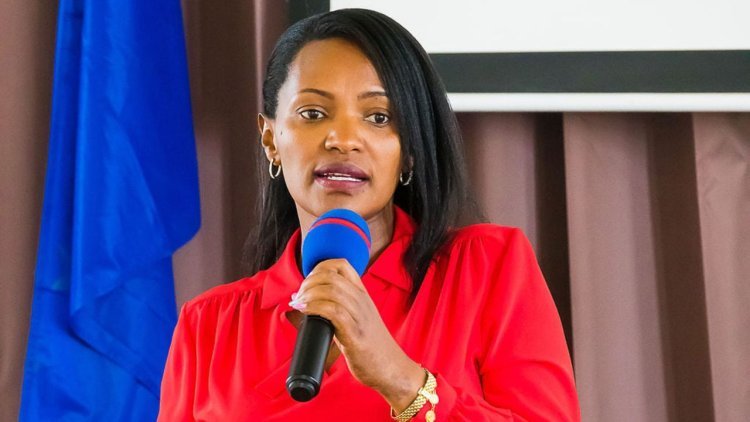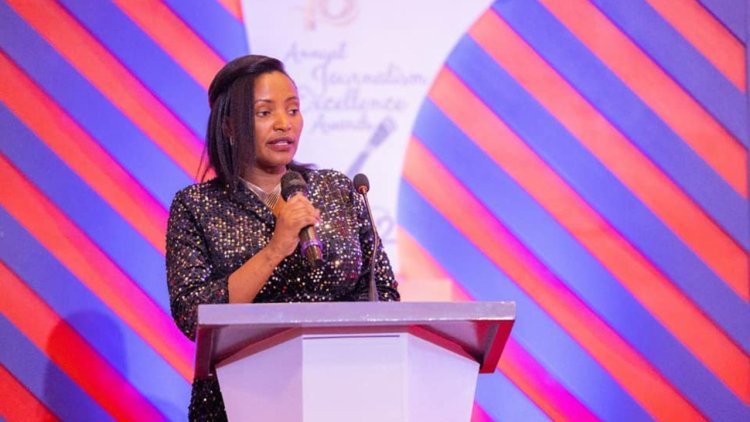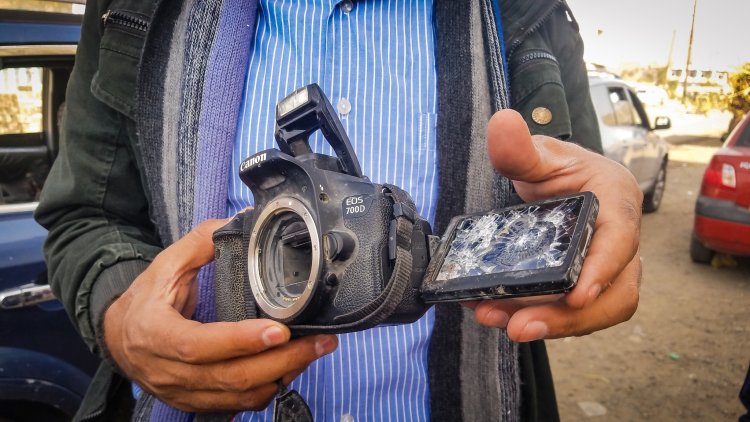Judie Kaberia Recounts Being Trolled Online While At Capital FM, Harassed By MP
Kaberia revisited the story she had done at the time which was political in nature and which had uncovered a political lie.

Former Association of Media Women in Kenya (AMWIK) Executive Director Judie Kaberia recalled how she was a victim of online harassment by senior political leaders over a story she did in 2013 while she was at Capital FM.
During a recently exhibited profile as narrated by Free Press Unlimited, Kaberia revisited the story she had done at the time which was political in nature and which had uncovered a political lie.
As a result, she faced online attacks for three days by senior political figures who had hired bloggers to shred her reputation using words and caricatures to demean, demonise and make fun of her.
Her next three weeks were even worse as she went through depression upon believing some of the things shared online about her.

Former AMWIK Executive Director, Judie Kaberia, at the Annual Journalism Excellence Awards on May 6, 2022. /FACEBOOK.JUDIE KABERIA
"The attacks were mostly about my sexuality and my family – very personal and intrusive. I resigned but my resignation was turned down. I took a three-week leave and planned never to work in the media again.
"Within those three weeks, I was sliding into a depression. I started believing some of the things posted about me. Without my friends and family who helped me get help, I do not know what would have happened," she narrated.
Her ordeal was even worse offline as a woman journalist as she had to face struggles with proving her professionalism, noting that "Most times we are treated like sort of flower girls, or bystanders to watch a news source, or someone waiting to be requested to go on dates by politicians."
As a result of the treatment, Kaberia kept away from covering stories in Parliament owing to being fed up with being rejected and reported by politicians to her editors that she was "rude and unfriendly".
"I also faced sexual and physical assault from a member of parliament (MP). I had gone for a one-on-one interview at a hotel, and my source (MP) had everything planned. A struggle ensued as I tried to escape - which I, fortunately, succeeded in doing.
"The worst part of all this is, that even when I reported it to my editors, who were all men, they seemed not to understand why I did not want to cooperate. Maybe it was not their fault, it is just that our culture normalizes sexual harassment," she went on.
She nonetheless praised the United Nations Educational, Scientific and Cultural Organization (UNESCO) for providing her and many other women in the media a platform and opportunity to share their personal experiences as media professionals.
Kaberia commended UNESCO for funding a project to document sexual harassment against women journalists and also helped her lead a campaign to raise awareness about sexual harassment in the media.
"The support we receive from like-minded organisations keeps me motivated. But I am also motivated to continue fighting for women’s rights.
"I have been through this journey and I know many other women need me and my story to help them remain resilient and aware of their rights. They have the power to say no to ill-treatment, especially behaviours that demean them as women," she added.
Kaberia advised women to learn how to say NO and develop a thick skin as well as work very hard, that is, 1,000 times harder than men in a media environment that has made it tough for women journalists to thrive.
"We must remain professional and persistent. In order to remain relevant and rise in our careers, we must promise ourselves not to give up, but focus on the goal and get ready to fight the hurdles we meet," she concluded.
Kaberia joined Capital FM as an associate editor between April 2006 and April 2017 where she specialised in investigative reporting for Radio, TV and Print Online, analytical feature writing and exclusive story writing
The Media Council of Kenya (MCK) in August 2022 revealed how some of at least 43 journalists harassed during the August 9 general elections were subject to online attacks, terming former President Uhuru Kenyatta's government's decision not to block internet access during the electioneering period, rendering some digital journalists vulnerable to online harassment.
MCK termed March 2023 as the darkest month in the history of Kenyan media, revealing that over 25 local and international journalists were injured in the Azimio la Umoja protests.


 admin
admin 




